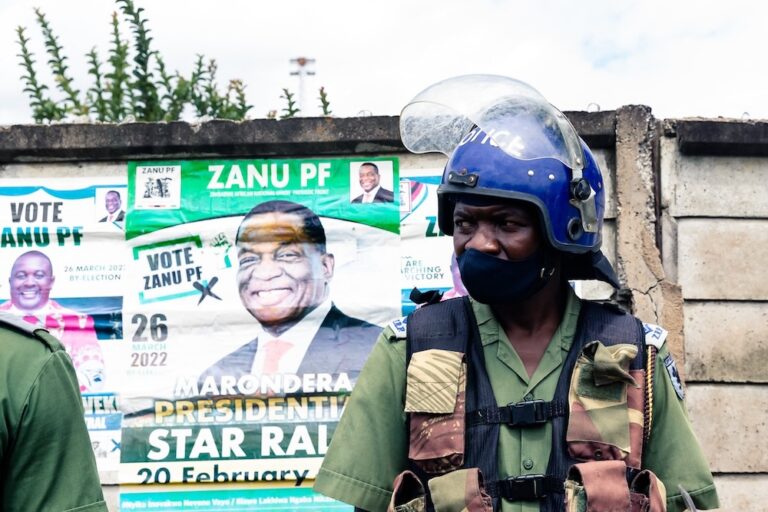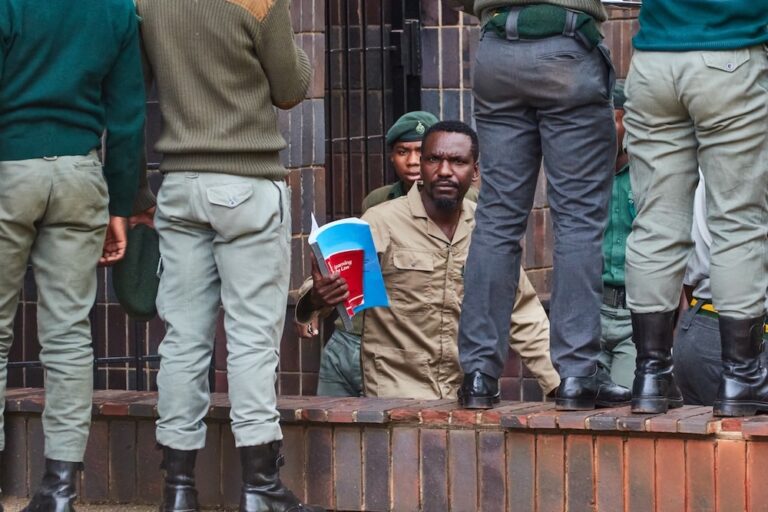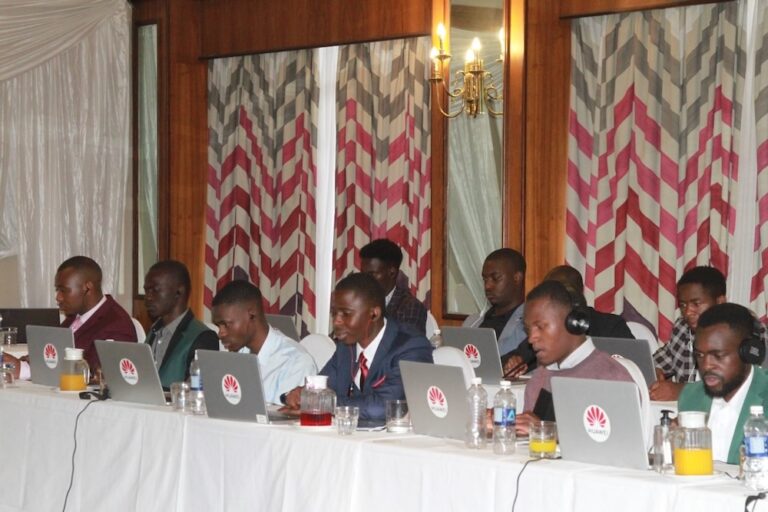On November 5, 2012, a dozen uniformed and plain-clothes police officers with a search warrant raided the Harare office of the Counseling Services Unit (CSU), which provides medical and psychological care for victims of political violence and torture.
(Human Rights Watch/IFEX) – 9 November 2012 – The Zimbabwe government’s raid on a civil society group raises fears of a broader crackdown on perceived opposition activists ahead of elections due in 2013, Human Rights Watch said today.
On November 5, 2012, a dozen uniformed and plain-clothes police officers with a search warrant raided the Harare office of the Counseling Services Unit (CSU), which provides medical and psychological care for victims of political violence and torture. Before they entered, armed riot police surrounded the office and threatened to fire tear gas into the building, which contained other tenants. The police arrested five of the group’s employees and confiscated confidential medical records, including removing a computer.
“The police raid on a torture victims’ center sends a chilling message to Zimbabwean civil society ahead of next year’s elections,” said Daniel Bekele, Africa director at Human Rights Watch. “If a medical group is at risk, then everyone is.”
Patients at the office at the time were unable to receive treatment.
The warrant produced by the police indicated a search for material that “defaces any house, building, wall, fence, lamppost, gate, elevator without the consent of the owner or occupier thereof,” in violation of section 46 of the criminal code.
Two of the arrested employees, James Zidzimu and Penn Bruno, were taken to Harare Central Police Station and soon released.
On November 7, the remaining three, Fidelis Mudimu, Zachariah Godi, and Tafadzwa Gesa, were transferred to Bulawayo Police Station and the following day charged under section 46. A magistrate granted them US$100 bail each and ordered them to surrender their passports and to report once a week at Harare Central Police Station.
State security forces aligned with the former ruling party ZANU-PF have conducted many raids in the past year against nongovernmental organizations, including CSU, the counseling service. Several human rights activists have been arrested in the process.
In August, police twice raided the offices of the Gays and Lesbians of Zimbabwe. During a raid on August 11, police briefly detained 44 members of the group, assaulting them with batons, slaps and punches.
Police have also repeatedly harassed Abel Chikomo, director of the Zimbabwe Human Rights NGO Forum. Chikomo was arrested and released on bail in 2011 after being charged with running an unregistered organization. He was summoned to stand trial on July 3, 2012. The government withdrew the summons on July 25 but reiterated its intention to summon him again at a future date. Despite the withdrawal of the summons, police have continued to visit the offices of the NGO Forum and harass Chikomo.
Zimbabwe is due to hold a referendum on a new constitution and elections in 2013. The Global Political Agreement that established the current power-sharing government in 2009 requires Zimbabwe to undertake a series of legislative and other reforms before it holds new elections. The Southern African Development Community (SADC) appointed the government of South Africa to help facilitate the constitutional process and pave the way for the elections.
Human Rights Watch has repeatedly expressed concern at the slow pace of human rights reforms in Zimbabwe, including only minimal changes to repressive laws, a lack of security sector reform, and ongoing repression of civic and political activity.
“Civil society organizations are a crucial component of next year’s elections in Zimbabwe,” Bekele said. “African governments involved in the reform effort need to strongly condemn government actions against these important groups.”


